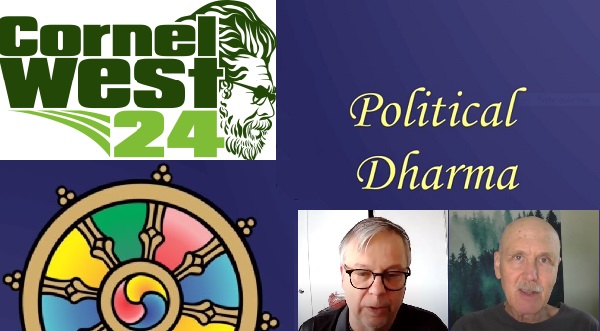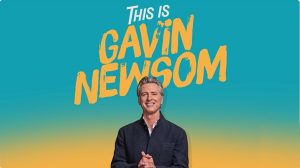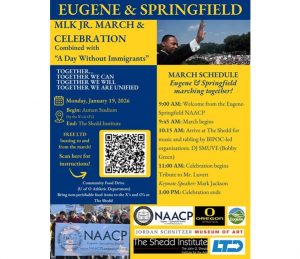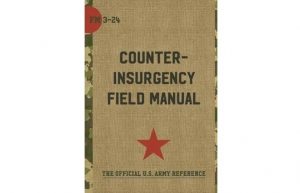Pacific Greens prepare for 2024 presidential campaign
7 min read
The Pacific Green Party prepares for the 2024 presidential election and a surge in membership energized by the candidacy of Dr. Cornel West. Author, political science professor and Green Party activist, Alan Zundel:
Alan Zundel: Let’s look at the concept of grassroots democracy, because that was one of the key principles from the outset. And early on at the first convention of the organization that later evolved into, or fed into, the current Green Party of the United States, it was one of their 10 key values that they expressed.
[00:00:34] And they asked questions like: ‘How can we develop systems that allow and encourage us to control the decisions that affect our lives? How can we ensure that representatives will be fully accountable to the people who elect them? How can we develop planning mechanisms that would allow citizens to develop and implement their own preferences for policies and spending priorities?’ And so on.
[00:00:59] Today, how the Green Party of the United States describes grassroots democracy is a bit different, less of a question, more of declarative statements. A first sentence: ‘All human beings must be allowed a say in decisions that affect their lives. No one should be subject to the will of another.’ Okay, that’s okay so far, but kind of vague on how to achieve that. How does everyone get a say in decisions?
[00:01:23] ‘We work to improve public participation in every aspect of government and seek to ensure that our public representatives are fully accountable to the people who elect them.’ All right. This part is talking about representative democracy. So is that the kind of say that we get over the decisions that affect our lives? A vote to elect someone who’s going to make decisions for us? Someone who necessarily is going to make decisions that not everyone can agree with, because there’s a multiplicity of opinions among people all the time.
[00:01:56] To go on: ‘We also work to create new types of political organizations that expand the process of participatory democracy by directly including citizens in decision making.’ Now that is a statement about direct democracy with citizens directly involved in making decisions rather than representative democracy, which they just talked about in the previous sentence.
[00:02:22] So now you’ve got a tension between direct democracy, where people come together and they spend time talking and trying to build consensus so that they can get to a point where all of them agree enough on decisions and actions going forward, that nobody feels like someone else is imposing this on them. They had an ability to talk it through until everybody agreed.
[00:02:45] As you can imagine, and is often found in practice, that can take a long time. The bigger the group and the less they know each other, the harder it is to achieve that kind of consensus.
[00:02:56] So in the history of the Green Party, they moved from like strong consensus toward, ‘Okay, consensus, we’ll try to reach it, but at some point we’re going to have to get at least a minimum threshold of votes.’ May have been 90%, may have been 75%, may have been two-thirds. Now it’s simply a majority.
[00:03:11] That’s always a question of: Did you get a say in the decision that affected you if you were in the 49% that voted against something, as opposed to the 51% who did vote for it? So already they have issues that they have to contend with in making timely decisions. They can’t sit there all night until everybody agrees. You’ll drive people out of the party that way. We have driven people out of the party that way.
[00:03:34] John Q: At the Sept. 17th convention, another longtime Green Party activist, Brian Setzler:
[00:03:40] Brian Setzler: I’ve been around with the Green Party for 30 years plus. And when we first started, we were organized in chapters. We weren’t actually a political party because we hadn’t yet qualified for the ballot. And in that period of time, we accomplished so much.
[00:03:54] We helped close down Trojan. We took on forest defense work. We worked with the migrant farm workers union. We had big social events and things that happened. We had an interdependent state party. We networked around the state. We had offices.
[00:04:12] We just did a lot of stuff and not long after we became a political party, this thing changed and I didn’t really understand it at the time. But when I was working on getting an MBA in sustainable business, I came to understand what happened.
[00:04:27] And that was that the mental models of what a political party looks like and does and how it works took over. And so I just want to say, I’m speaking today because I’ve spent a lot of time studying this and looking at it and understanding it.
[00:04:43] What I’m proposing is not really that big a change, but what I’m proposing about is freeing us up to do the things that we want to get done. Because right now, our structure (and this is true, not only here in Oregon, but throughout the United States and through the national level and everything that Greens have created), we create a structure that pits us against each other. And so what I’m trying to do and what I proposed is a system like we had when we first started, which I found incredibly effective.
[00:05:17] I thought we were going to change the world, which was: Chapters or cells or independent groups worked on what they were interested in, and they didn’t have to come and get a bunch of permission or think the only way they could act is through a convention. And essentially, that’s where we’re at.
[00:05:38] And what I’m proposing is just an independent cellular distributed network. It’s not a decentralized network. It’s distributed where people work together. And I think when you understand it and ask questions and come to learn it, everything we want to get done can get done through that network, and I’ve been working with Alan (Zundel) in I think a pretty thoughtful process and I really appreciate what he did to help move this along.
[00:06:05] John Q: Brian says organizational structure determines behavior, and he’s proposing a new structure to liberate Green activists. He says new bylaws will resolve long-standing tensions about grassroots democracy. On his podcast Political Dharma, Alan Zundel:
[00:06:20] Alan Zundel: So it’s kind of a muddle of different conceptions of democracy—grassroots democracy, participatory democracy, direct democracy, representative democracy—how do you balance those? How do you clarify the role of each of those conceptions and how does that work? They’re somewhat different, right? There’s tensions between them.
[00:06:39] And how does the state body and, say, a membership convention, how do they interact if you want to have a membership convention to have more membership participation in decisions and in the nominations to office—what’s the role of the state central committee toward the convention?
[00:06:57] Do they have the responsibility and the power to make decisions about how that convention is going to be set up and run, to set the agenda, to choose a facilitator, to set time limits on it? Do they have the authority to do that to make sure it runs smoothly and decisions that need to get made, get made? Or is the ultimate power in the hands of the members who show up at a convention, is it in their power to switch all the rules around?
[00:07:23] Now, I was just at a convention online of our state Green Party, the Pacific Green Party of Oregon. And that has been a tension that we’ve discussed for a while now. What is the role of the state central body vis-a-vis conventions when conventions are not practical for timely decision making?
[00:07:41] There can be a lot of frustration trying to get things done in the limited time that we have, and lots of people want to speak to questions, even people who haven’t given a lot of thought to it until it showed up on the convention agenda.
[00:07:53] So, all these conceptions of direct democracy, or participatory democracy, or representative democracy, or grassroots democracy, they tend to fight against each other, and they’re hard to resolve. And the process of trying to resolve them is already working within a system that is dysfunctional in many cases because of these tensions. That’s what I’ve seen here in Oregon.
[00:08:17] One of the big things on our agenda was to try to pass new bylaws to create a new organizational structure with a different kind of configuration of these various things that you have to balance. But we never got to it because we spent so much time on just how to run the convention. We ran out of time for the discussion of the bylaws.
[00:08:37] Now that’s using a dysfunctional system to try to create a more functional system. (Probably not the best strategy, now that I look at it in hindsight.) And the outcome was that we didn’t get through everything and just a greater mess.
[00:08:50] My point being: To move us towards a vision of a different society, we need to tie in these kind of campaigns towards building organizations that are going to last over several election cycles that can try to clarify the vision of a new society that we’re working for and build institutions and build structures in our organizations to actually express and show how practical these kinds of ideas can be.
[00:09:19] I think it’s possible. I think it’s worth working toward. I think right now with Dr. Cornel West’s campaign, the Green Party has a path towards building its organization. And I think it also needs to look hard at how that organization is supposed to function and how it’s going to balance these various competing conceptions of democracy. That is, clarify our philosophy, our underlying philosophy, and then build structures that actually actualize that, right? I think it can be done. I think it’s necessary. And let’s not blow it.
[00:09:56] John Q: Brian Setzler and Alan Zundel invite you to help them prepare for the presidential campaign in 2024. Check out Alan’s podcast and join the conversation at PacificGreens.org.







